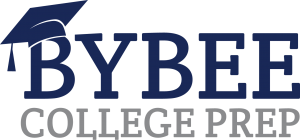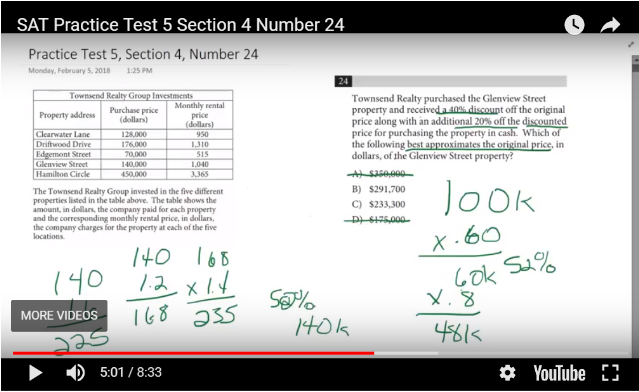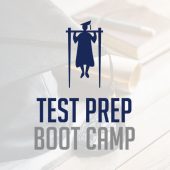Avoid These 10 Mistakes in the College Application Process
The college application process can feel overwhelming for families, especially when trying to balance deadlines, decisions, and the pressure to get it all right. With so many moving parts, it’s easy to make missteps that can negatively impact a student’s chances of admission—or make the process far more stressful than it needs to be.
In this post, we’ll explore 10 of the most common mistakes families make during the college application process. By recognizing these pitfalls early and learning how to avoid them, you can set your student up for success while navigating this exciting, but challenging, chapter.
Let’s dive in and uncover the strategies to make your college application journey smoother and more effective.
1. Starting the Process Too Late
Waiting until senior year to begin the college admissions process is one of the most common mistakes families make. Applications require thoughtful planning, from building a list of schools to writing essays and gathering recommendations. Starting early—ideally in sophomore or junior year—gives students time to explore colleges, prepare for standardized tests, and develop a strong resume of extracurricular activities. Procrastination can lead to rushed decisions, missed deadlines, and unnecessary stress.
building a list of schools to writing essays and gathering recommendations. Starting early—ideally in sophomore or junior year—gives students time to explore colleges, prepare for standardized tests, and develop a strong resume of extracurricular activities. Procrastination can lead to rushed decisions, missed deadlines, and unnecessary stress.
2. Underestimating the Importance of Junior Year
Junior year is pivotal in shaping a student’s academic and extracurricular profile. Colleges heavily weigh grades from this year, so students should aim for strong academic performance. It’s also the ideal time to take the SAT or ACT, as well as explore leadership roles in clubs or sports. Earning a leadership position in an organization requires participation in their sophomore year. Waiting until senior year to focus on these areas leaves little room for improvement or preparation, potentially weakening a student’s overall application.
3. Focusing Only on Prestige
The allure of “big-name” schools often clouds judgment during the application process. Families sometimes overlook excellent colleges that might be a better fit academically, socially, or financially. A focus on prestige can also lead to disappointment if the student doesn’t gain admission. Instead, prioritize finding schools where your student can thrive—places that match their goals, interests, and learning style.
4. Overloading Applications
Submitting applications to dozens of colleges may seem like a good strategy, but it often results in quantity over quality. Each application requires time to tailor essays, complete forms, and meet deadlines. Applying to too many schools can dilute the effort and focus needed to make applications stand out. A targeted list of 6–10 schools, divided into reach, match, and safety categories, is a more strategic approach.
 5. Ignoring Test Prep
5. Ignoring Test Prep
Even in the age of test-optional policies, SAT and ACT scores can play a critical role in admissions and scholarship decisions. Skipping test prep means students might not achieve scores that reflect their true potential. Invest time in practice tests, study resources, or even prep courses to ensure your student performs their best—keeping doors open to more opportunities. Our Test Prep Boot Camp can help students improve their SAT scores 180-200 points or ACT scores 4-5 points; however, students have to plan ahead to make room in their schedules for the course.
6. Overlooking Financial Aid Deadlines
Financial aid can significantly reduce the cost of college, but missing deadlines for the FAFSA, CSS Profile, or scholarships can leave families paying more than necessary. Start early by gathering tax documents and researching aid requirements for each school. Mark all deadlines on a shared calendar to ensure nothing falls through the cracks.
7. Writing Generic Essays
College essays are an opportunity for students to showcase their personality, values, and aspirations—yet many submit generic, uninspired essays that fail to leave an impression. Avoid rehashing resumes or using clichéd topics. Instead, encourage your student to tell a compelling story that reflects their unique perspective and highlights why they would be a great fit for the college. Our College App Camp gives students a head start on this process by helping them complete their Common App the summer before their Senior year begins.
highlights why they would be a great fit for the college. Our College App Camp gives students a head start on this process by helping them complete their Common App the summer before their Senior year begins.
8. Failing to Demonstrate Interest
Colleges often track “demonstrated interest” to gauge how serious a student is about attending. Skipping campus visits, ignoring admissions webinars, or failing to engage with admissions officers can hurt an applicant’s chances. Show interest by visiting schools, attending virtual events, and reaching out with thoughtful questions. This can set your student apart from other applicants.
9. Applying to Too Few Safety Schools
Families sometimes overestimate a student’s chances at competitive schools and fail to include enough safety schools in their application list. A well-rounded college list should include at least two safety schools where the student is likely to be admitted and would be happy to attend. This ensures more options if reach and match schools don’t pan out. Common App and My Texas Future now offer direct admissions options where students can input their data and find a list of schools where they know they’ll be admitted.
10. Underestimating the Workload
The college application process is time-consuming, with essays, forms, interviews, and deadlines to juggle. Many students underestimate how much effort it takes to craft high-quality applications. Creating a timeline and breaking tasks into manageable steps can help prevent last-minute scrambling and ensure that each application receives the attention it deserves.
Conclusion: Start Strong and Stay Ahead
Navigating the college admissions process can be overwhelming, but avoiding these common mistakes can make all the difference. By starting early, planning strategically, and staying organized, your family can transform what often feels like a stressful journey into a rewarding one. Remember, every step counts—from crafting compelling essays to meeting deadlines and building a balanced college list.
If you’re feeling uncertain or want expert guidance to avoid these pitfalls, we’re here to help. At Bybee College Prep, our experienced team specializes in helping families confidently navigate every aspect of the college admissions process.
Take the first step toward a successful college journey by scheduling a free introductory consultation today. Visit our consultation page to get started. Let us help your student achieve their college dreams!









